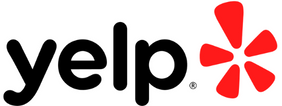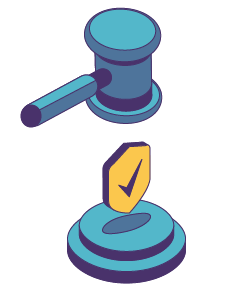Who We Are




















The internet has powered innovation, commerce, and expression in remarkable ways. Our coalition represents a broad cross-section of companies that have benefited from this environment.
Our goal is to ensure our diverse collection of users is represented in important policy conversations and preserve the internet as a place of limitless possibility.
Our Mission
Flexibility, diversity, and creativity are the foundations upon which the internet has grown, and our companies are working to ensure that laws continue to promote innovation, freedom of expression, and consumer choice in products and safety practices.
Myths vs. Facts

Myth:
Section 230 primarily helps large social media platforms.
Fact:
Section 230 protects internet sites and users by providing a legal basis for organizations of all shapes and sizes to moderate content. It prevents internet service providers (ISPs), internet sites of all sizes, and users from being held liable for objectionable content posted by other users. Section 230 doesn’t just apply to social media platforms.
Learn MoreMyth:
Under Section 230, internet companies don’t have an incentive to moderate user content because it gives them blanket immunity.

Fact:
Internet companies must moderate because Section 230 doesn’t provide unconditional legal immunity. Section 230 allows platforms to decide what content appears on their platforms and allows them to remove “objectionable” content without fear of legal liability. It does not provide blanket protection, so companies need to remove some types of harmful content—like spam or obscene material—off their platforms to protect users.
Learn More
Myth:
Section 230 has failed and needs to be reformed.
Fact:
The Internet would not be the engine of economic growth and force for bringing the world closer that it has become without the protections of Section 230. Policymaker concerns are rooted in the way some companies have moderated content under Section 230. That does not mean the law has failed. It means the internet community must work constructively to ensure users have a better understanding of the rules of the online services they are using.
Learn MoreMyth:
Changing Section 230 will only impact the big companies, like Facebook and Google.

Fact:
Some proposals to overhaul Section 230 could have a fatal impact on millions of small and medium-size internet-based companies by creating costly and inflexible regulations on content moderation. This would have the unintended outcome of further entrenching the position of the largest online platforms.
Learn More
Myth:
The First Amendment gives people the right to say anything they want on the internet.
Fact:
The First Amendment applies to the government, not private organizations or companies. In fact, it empowers private entities to make their own decisions about association. Just as a retail store, as a private business, is free to bar service to someone speaking rudely toward staff or other customers, internet companies are also free to set and enforce standards for appropriate content and behavior on their platforms.
Learn More